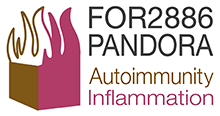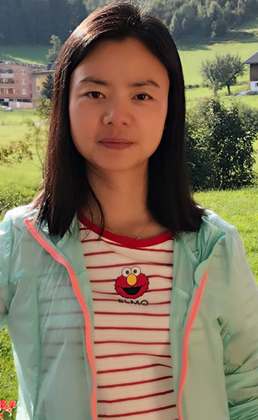Project A2
Intestinal epithelial cell death as modulator of intestinal dysbiosis, systemic autoimmunity and the onset of arthritis
During the first funding period, we have shown that dysregulated intestinal epithelial cell death by altered CASP8 or HIF2α protein function affects the gut microbiota and subsequently immune cell functions locally in the gut and in the periphery. On a functional level, we could further uncover that HIF proteins influence tight junction biology and epithelial cell death upstream of caspase-8 with opposing functions in experimental arthritis. Interestingly, we further identified that epithelial necroptosis influences tryptophan metabolism and that supplementation of short-chain fatty acids (SCFAs) ameliorates intestinal inflammation in CASP8 deficient mice. These data indicate that targeting intestinal epithelial cell death might represent a novel promising therapeutic option particularly during the early phase of arthritis. During the second funding period, we therefore propose to better delineate the link between epithelial hypoxia induced necroptosis, SCFAs and arthritis
2019-2022 (1st funding period):
Intestinal inflammation and dysbiosis are associated with autoimmune diseases such as rheumatoid arthritis. However, the underlying mechanisms are poorly understood. In this project, we want to characterize the connection between the intestinal eptihelial microbiome and the development of autoimmunity or joint inflammation. Specifically, we will investigate the relationship between epithelial cell death in the gut and inflammation in the joints as we have already shown that both caspase 8 (activated in apoptosis) and hypoxia-induced factors (HIF (activated in intestinal inflammation due to hypoxia)) have an important influence on the mucosal immune system and the composition of the microbiota. Previously unpublished preliminary data also indicate that both mentioned factors additionally control the systemic Th-17-induced autoimmunity and the onset of arthritis. We will therefore try to understand in this approach how the above-mentioned eptihelial factors can control inflammation via Th17 cells.
Prof. Dr. rer. nat. Claudia Günther
Department of Medicine 1
Chair of Medicine I (Prof. Dr. Neurath)
- Phone number: +49 9131 85-45240
- Email: c.guenther@uk-erlangen.de
Prof. Dr. rer. nat. Aline Bozec
Department of Medicine 3 (chair Prof. Georg Schett)
- Phone number: +49 9131 85-29032
- Email: aline.bozec@uk-erlangen.de
Iris Stolzer
Department of Medicine 1
Chair of Medicine I (Prof. Dr. Neurath)
- Phone number: +49 9131 85-35909
- Email: iris.stolzer@uk-erlangen.de
Jinming Wen
Department of Medicine 3
Chair of Medicine III (Prof. Dr. Schett)
- Phone number: +49 9131 85-29291
- Email: jinming.wen@uk-erlangen.de




